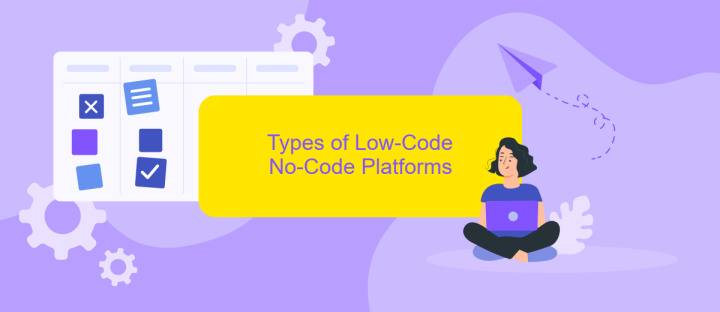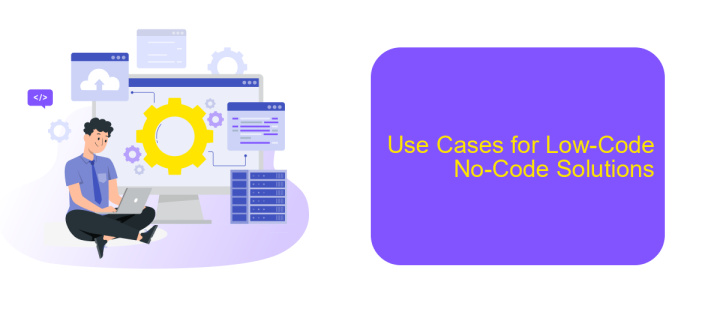Low-Code No-Code Solutions
Low-Code No-Code (LCNC) solutions are revolutionizing the way businesses develop software by enabling users to create applications with minimal or no coding expertise. These platforms empower non-technical professionals to design, build, and deploy applications quickly and efficiently, bridging the gap between business needs and IT capabilities. Discover how LCNC solutions are transforming the digital landscape and democratizing software development.
Introduction to Low-Code No-Code Solutions
Low-Code and No-Code solutions are revolutionizing how businesses develop and deploy applications. By minimizing the need for extensive coding knowledge, these platforms empower a broader range of users to create functional software quickly and efficiently. This democratization of app development accelerates digital transformation and innovation within organizations.
- Speed: Rapid application development reduces time-to-market.
- Cost-Effective: Lower development costs by reducing the need for specialized developers.
- Accessibility: Enables non-technical users to participate in app creation.
- Flexibility: Easily adaptable to changing business needs.
- Integration: Seamlessly integrates with various APIs and services.
One notable tool for integrating various services is ApiX-Drive. It facilitates the connection of multiple platforms without requiring deep technical skills. This makes it easier for businesses to automate workflows and improve operational efficiency. As a result, Low-Code and No-Code solutions, complemented by integration tools like ApiX-Drive, are becoming essential components of modern business strategies.
Benefits of Low-Code No-Code Development

Low-Code No-Code development offers numerous benefits, making it an attractive choice for businesses aiming to accelerate their digital transformation. One of the primary advantages is the significant reduction in development time. By utilizing visual interfaces and pre-built components, developers can create applications much faster compared to traditional coding methods. This approach not only speeds up the development process but also allows for rapid prototyping and iterative improvements, ensuring that the final product better meets user needs.
Another key benefit is the democratization of software development. With Low-Code No-Code platforms, individuals without extensive programming knowledge can contribute to the development process. This inclusivity fosters innovation and allows for a broader range of ideas and solutions. Additionally, these platforms often come with built-in integration capabilities, such as ApiX-Drive, which simplifies the process of connecting various applications and services. This ease of integration ensures seamless data flow and enhances overall operational efficiency.
Types of Low-Code No-Code Platforms

Low-Code No-Code platforms have revolutionized the way businesses develop applications by minimizing the need for extensive coding skills. These platforms can be broadly categorized into several types, each catering to different needs and functionalities.
- General Purpose Platforms: These platforms, like OutSystems and Mendix, provide a wide range of functionalities, allowing users to build complex applications with ease.
- Business Process Management (BPM) Platforms: BPM platforms such as Appian focus on automating and optimizing business processes, making them ideal for workflow automation.
- Integration Platforms: Platforms like ApiX-Drive excel in integrating different software and services, enabling seamless data flow and connectivity between various systems.
- Specialized Platforms: These platforms, such as Webflow and Shopify, are tailored for specific use cases like web design and e-commerce, offering specialized tools and templates.
By understanding the different types of Low-Code No-Code platforms, businesses can select the one that best fits their requirements, ensuring efficient and effective application development and integration.
Use Cases for Low-Code No-Code Solutions

Low-code and no-code solutions have become increasingly popular for their ability to streamline development processes and empower non-technical users. These platforms are versatile and can be applied across various industries to address different needs.
One common use case is in the realm of business process automation. Companies can utilize low-code tools to create workflows that automate repetitive tasks, thereby increasing efficiency and reducing human error. Another frequent application is in the development of customer-facing applications, such as portals and mobile apps, which can be quickly deployed with minimal coding skills.
- Automating business processes and workflows
- Developing customer-facing applications
- Creating internal tools for data management
- Integrating various software and services
For instance, services like ApiX-Drive enable seamless integration of various applications without the need for extensive coding knowledge. This allows businesses to easily connect their software ecosystem, ensuring smooth data flow and enhancing overall operational efficiency. By leveraging low-code and no-code platforms, organizations can accelerate their digital transformation and stay competitive in a rapidly evolving market.
Future of Low-Code No-Code Development
The future of Low-Code No-Code development is poised to revolutionize the landscape of software creation. As businesses strive for agility and efficiency, these platforms offer a solution that democratizes software development. By allowing non-technical users to create and modify applications, organizations can significantly reduce development time and costs. This shift not only empowers business users but also frees up IT departments to focus on more complex tasks, fostering innovation and accelerating digital transformation.
Integration capabilities are another critical aspect shaping the future of Low-Code No-Code solutions. Tools like ApiX-Drive facilitate seamless integration between various applications and services, enabling businesses to create cohesive and automated workflows effortlessly. As these platforms continue to evolve, we can expect even more sophisticated features and greater scalability, making Low-Code No-Code an indispensable part of the modern business toolkit. The continuous advancements in AI and machine learning will further enhance these platforms, providing smarter and more intuitive development environments.
FAQ
What are Low-Code and No-Code solutions?
Who can benefit from using Low-Code No-Code platforms?
How secure are Low-Code No-Code platforms?
Can Low-Code No-Code platforms integrate with existing systems?
What are the limitations of Low-Code No-Code solutions?
Time is the most valuable resource for business today. Almost half of it is wasted on routine tasks. Your employees are constantly forced to perform monotonous tasks that are difficult to classify as important and specialized. You can leave everything as it is by hiring additional employees, or you can automate most of the business processes using the ApiX-Drive online connector to get rid of unnecessary time and money expenses once and for all. The choice is yours!

